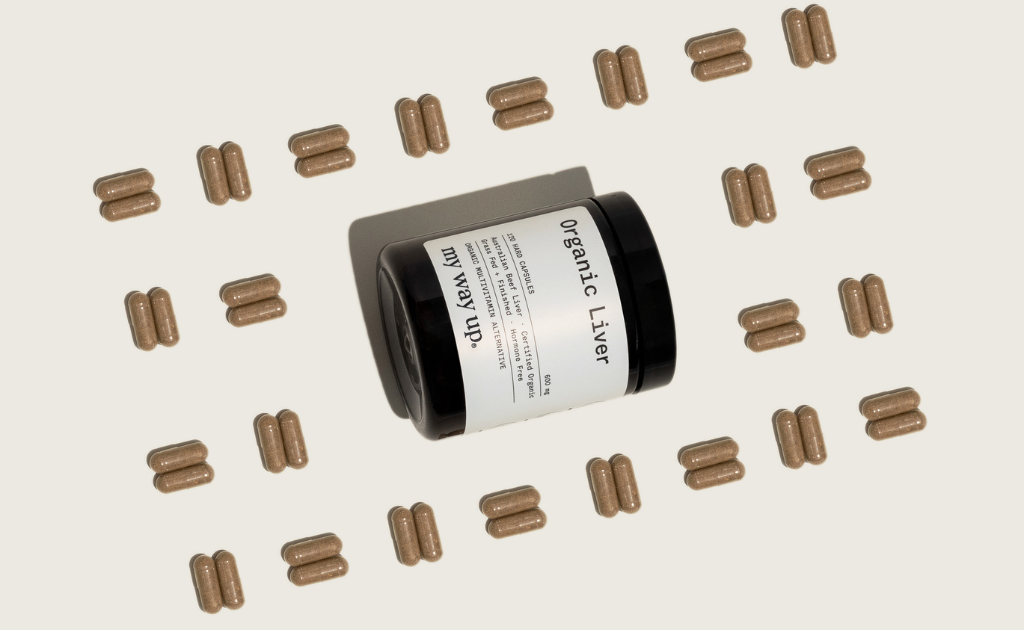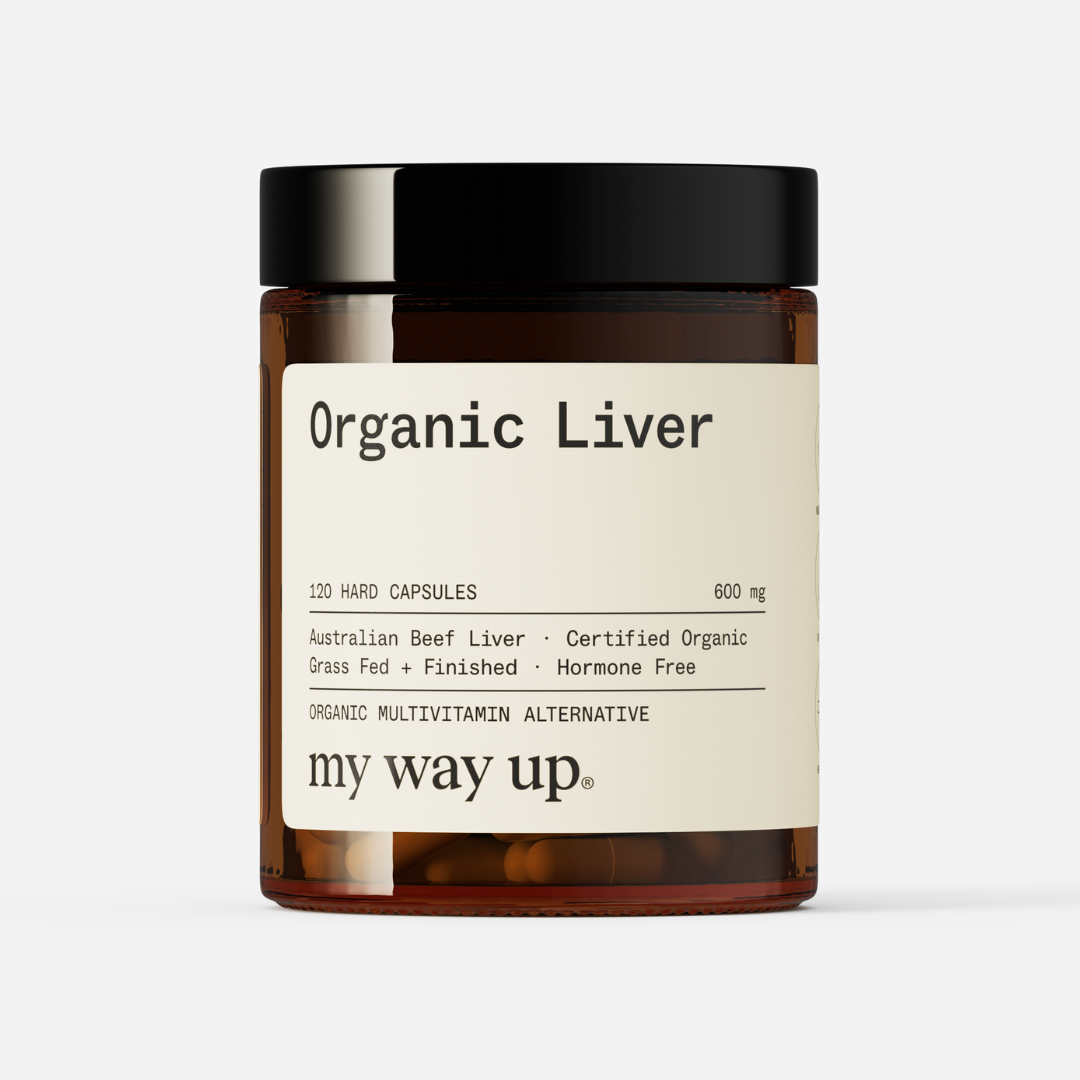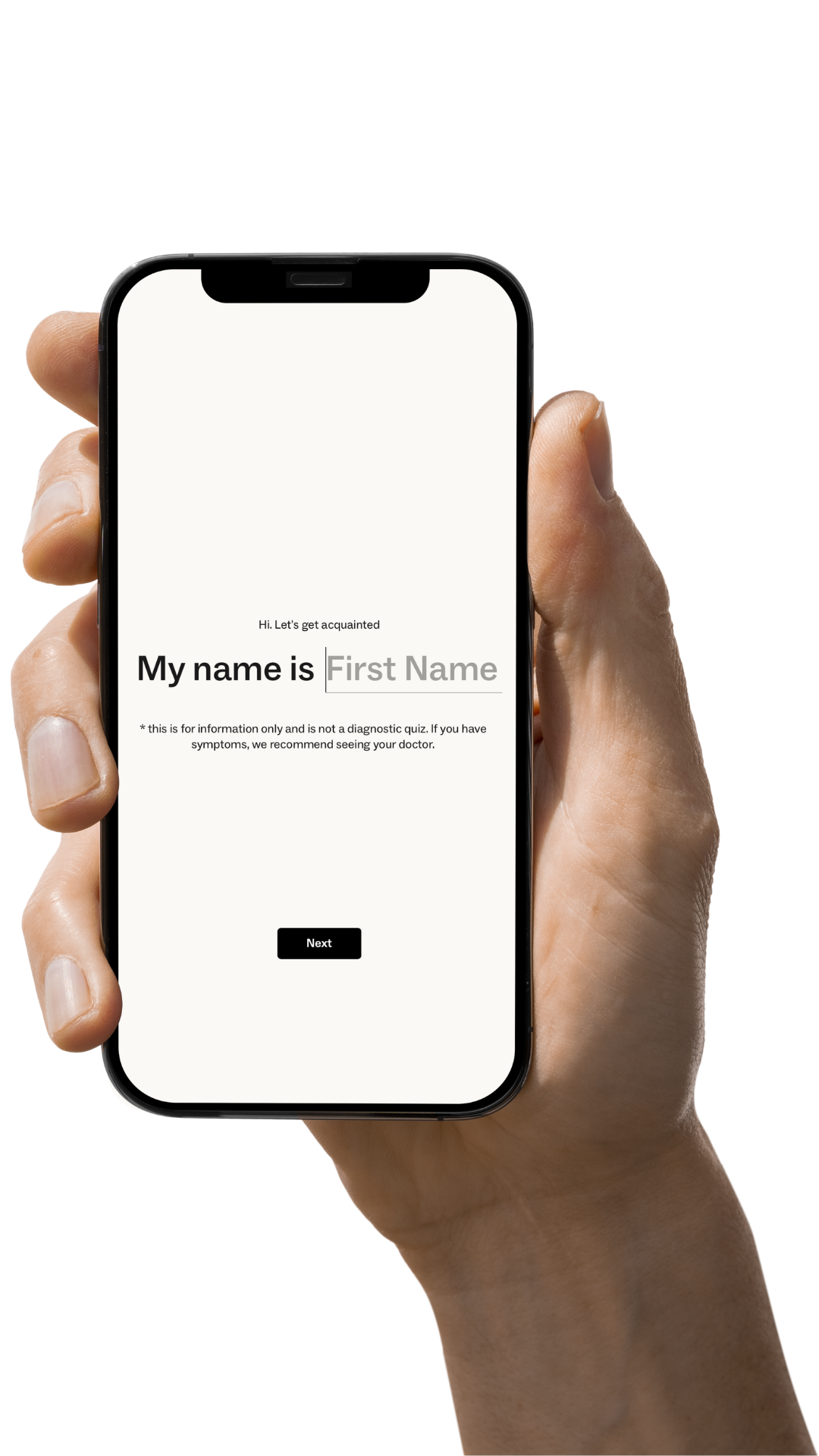3 reasons beef liver is a more effective multivitamin than multivitamins

For decades, the daily multivitamin has been pushed as a nutritional insurance policy to people who want to look and feel their best.
Lately, liver has been making a comeback.
Let's look at 3 reasons why liver is a more effective multivitamin than multivitamins.
1. Multivitamins are poorly absorbed
In robust studies of almost half a million people, researchers at John Hopkins University found that taking a synthetic daily multivitamin made absolutely no difference to reducing the risk of heart disease, mental decline or cancer.
- Their final verdict was to eat more high nutrient dense foods.
- Liver is the highest nutrient density food on earth, in terms of the absorbable amounts of vitamins and minerals present.
It's also a natural food. Of course, it's best to look for organic, grass-fed and finished versions of liver, as just like anything, there's a spectrum of quality in the market.
2. Multivitamins are made in factories
Liver is made by animals. Get the right kind and it will be organic, grass-fed and finished, and completely natural.
- Multivitamins are made in factories, largely in Asia.
- Many of these vitamins are produced using chemical reactions to make the vitamin.
- Often, they aren't even the usable form of the vitamin.
For example - vitamin A.
Most multivitamins use a difficult to absorb, pre-formed version of vitamin A called beta-carotene. This needs to be turned into actual vitamin A (retinol) in the liver, with the help of thyroid hormone.
Liver on the other hand, contains nothing but retinol vitamin A: completely absorbable, no thyroid hormone use necessary, very good for gut and skin health.
It's these exact kind of problem in synthetic multivitamins that makes then ineffective, and a waste of money.
3. Taking massive amounts of synthetic vitamins isn't natural
The natural way to consume vitamins is in within the context of eating food - not taking tablets.
It's simple unclear as to how useful it is to isolate vitamins, and then take massive amounts of them on their own.
- Liver is a high vitamin and mineral food.
- It's been eaten for thousands of years by humans.
Importantly, you can use liver as an organic, natural daily multivitamin - and the benefits are clear.
Hundreds of research papers have shown the relationship between the vitamins and minerals contained within liver and improvements in human skin, gut, hormone and metabolic health.
"But liver grosses me out!"
Fair enough! Liver on it's own isn't for everyone.
Here are 2 fabulous alternative options for regular liver use:
1. Organic Liver Multivitamins
Take 2 capsules daily to get your daily requirements of vitamins A, D, E, K, B12, folate, coQ10, iron, copper, and some vitamin C, amongst many other minerals.
These are made exclusively from Organic Australian grass-fed and finished beef liver from the heartland of Australia

2. Liver paté
You can make your own liver paté in order to get your liver in. The downside with this option is that store bought liver paté isn't healthy - it's made with poor quality fats, emulsifiers and artificial stabilisers and gelling agents.
Making your own is a far better option.
So do yourself a favour and get off those synthetic, factory-made multivitamins.
The research doesn't support any health claims made by multivitamins manufactures, and these pills are loaded with poor quality, poorly absorbed versions of critical vitamins and minerals that you should be getting through your diet and using superfoods like liver as a multivitamin supplement.
References:
1. Guallar, E., Stranges, S., Mulrow, C., Appel, L., Miller, E., 2013, Enough Is Enough: Stop Wasting Money on Vitamin and Mineral Supplements
2. Eitenmiller, R. R., & Landen Jr, W. O. (1999). Vitamin analysis for the health and food sciences.Journal of Agricultural and Food Chemistry, 47(1), 164-167. doi:10.1021/jf980815k
3. Allen, L. H. (2002). Bioavailability of vitamin B12.Nutrition Reviews, 60(6), S20-S27. doi:10.1301/00296640260130768
4. Tanumihardjo, S. A. (2011). Vitamin A: biomarkers of nutrition for development.American Journal of Clinical Nutrition, 94(2), 658S-665S. doi:10.3945/ajcn.110.005777
5. Stabler, S. P. (2013). Vitamin B12 deficiency.New England Journal of Medicine, 368(2), 149-160. doi:10.1056/NEJMcp1113996
6. Hallberg, L., & Hulthén, L. (2000). Prediction of dietary iron absorption: an algorithm for calculating absorption and bioavailability of dietary iron.American Journal of Clinical Nutrition, 71(5), 1147-1160. doi:10.1093/ajcn/71.5.1147

